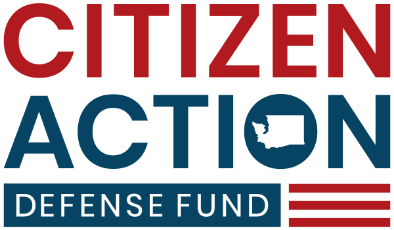In 2022, Washington’s Legislature passed ESSB 5974, permitting the increase of several taxes and fees in order to fund ostensibly eco-friendly transportation projects and initiatives, and includes several provisions that transcend its exclusive titular commitment to “transportation resources.” The bill also did a lot of other things; created rulemaking for the climate commitment act, permitted minors to ride ferries for free, raised money, spent money and became the proverbial Christmas tree of legislation in which everyone gets to add something. Unfortunately—as they are too often want to do—the Legislature’s move here is in patent violation of the Washington Constitution. Specifically, the bill runs afoul of the Constitution’s “single-subject rule” (art. II, §19), which prohibits the passage of—and thus voids ab initio (“from the start”)—any and laws that “embrace more than [the] one subject . . . expressed in the title.” This is hardly unique to Washington, with 40 other state constitutions containing the same or similar rule. Still, our lawmakers’ interpretation of the rule and its scope can vary substantially—and substantively—depending upon the political salience of the underlying policies. Several weeks ago, the Washington Supreme Court declined to accept jurisdiction of the case (for now) and sent it to the Washington Court of Appeals where it will likely be set for hearing soon.
Sometimes the single-subject rule is not open to plausible debate. For example, a bill declaring July Washington’s “Ice Cream Month” cannot apportion public funds to Planned Parenthood. The impetus for this rule is obvious. Without it, our legislators would be tempted—that is, more so than they already are, with the rule ostensibly in place—to logroll and horse-trade scores of Frankenstein-like bills, shrouded in enough miasma to prevent most voters from ascribing a specific policy prescription to a particular lawmaker. To wit, if the “Ice Cream Month” bill also committed state resources to Planned Parenthood, any “aye” vote could claim they were only supporting one of the two (or more) subjects, and not whichever one has garnered public ire (more likely the latter). This is similar to the winning argument against the federal line-item veto, which starting in 1996 would have permitted the president to strike severable sections of a certain spending bills, signing the remainder into law. The U.S. Supreme Court struck down the attempt, reasoning, in part, that such “would authorize the President to create a different law” than the one Congress passed—“one whose text was not voted on by either House of Congress or presented to the President for signature.” In a similar sense, if Governor Inslee started taking a sharpie to sections of bills with which he disagreed, he would essentially be hijacking the Legislature’s core function as lawmaker, accountable first and foremost to the voters.
Amidst the doctrinal confusion, it is notable that some of our most eminent officeholders appear content to violate the state constitution when it serves their policy interests to ignore it, yet herald the single-subject rule as all but inviolable when doing so furthers their political objectives. While ESSB 5974 is the latest example of such hypocrisy, it is hardly the only one. In 2019, officials—including some lawmakers who voted for ESSB 5974—heavily criticized a voter initiative that would have capped car tab fees at $30. Though easing the financial burden of Washington drivers, officials in Seattle and elsewhere sued, fearing that the savings to consumers would cost them too much in discretionary transportation funds. Attorney General Bob Ferguson, never one to be petty, celebrated the voter-approved initiative’s downfall, calling on the its primary advocate—activist Tim Eyman—to “look in the mirror and apologize to voters for once again sending them an initiative that failed to survive a legal challenge and deliver on its promises.” Of course, the initiative would have succeeded had Ferguson and his ilk not pushed so hard against it (even as Ferguson’s office ostensibly defended the initiative in court—though the effort was subpar at best). In another recent example, lawmakers in Olympia this past session sparred for weeks over whether to pass a major overhaul of the state’s existing (and incredibly tenant-friendly) landlord-tenant laws, in an attempt to mimic statewide Tacoma’s recent barely-passed rent-control proposal. Among several other problems, the HB 2114 likely would have violated the single-subject rule by cramming a wishlist of bad progressive policies into one bill under the too-broad banner of “housing stability.” Its supporters apparently had no qualms with the overbreadth, seeing as here the violation stood to serve their own political purposes.
We Washingtonians deserve a far more consistent application of one of our state’s most straightforward constitutional precepts—i.e., a rule that simply requires a law does what its title says, nothing more nor less. With three of an original six initiatives on the ballot this election—the most in a single year since statehood, until the Legislature passed three of them near close-of-session—it is a particularly imperative time to hold our legislators accountable for ensuring constitutional compliance in their ranks. Just as the single-subject rule is designed to allow the courts to prevent logrolling, so do I urge my readers to hold Evergreen’s government responsible to ensure that the single-subject rule properly serve this function, instead of as a sword for progressivism and a shield against responsible governance.
Alki,
Sam Spiegelman

